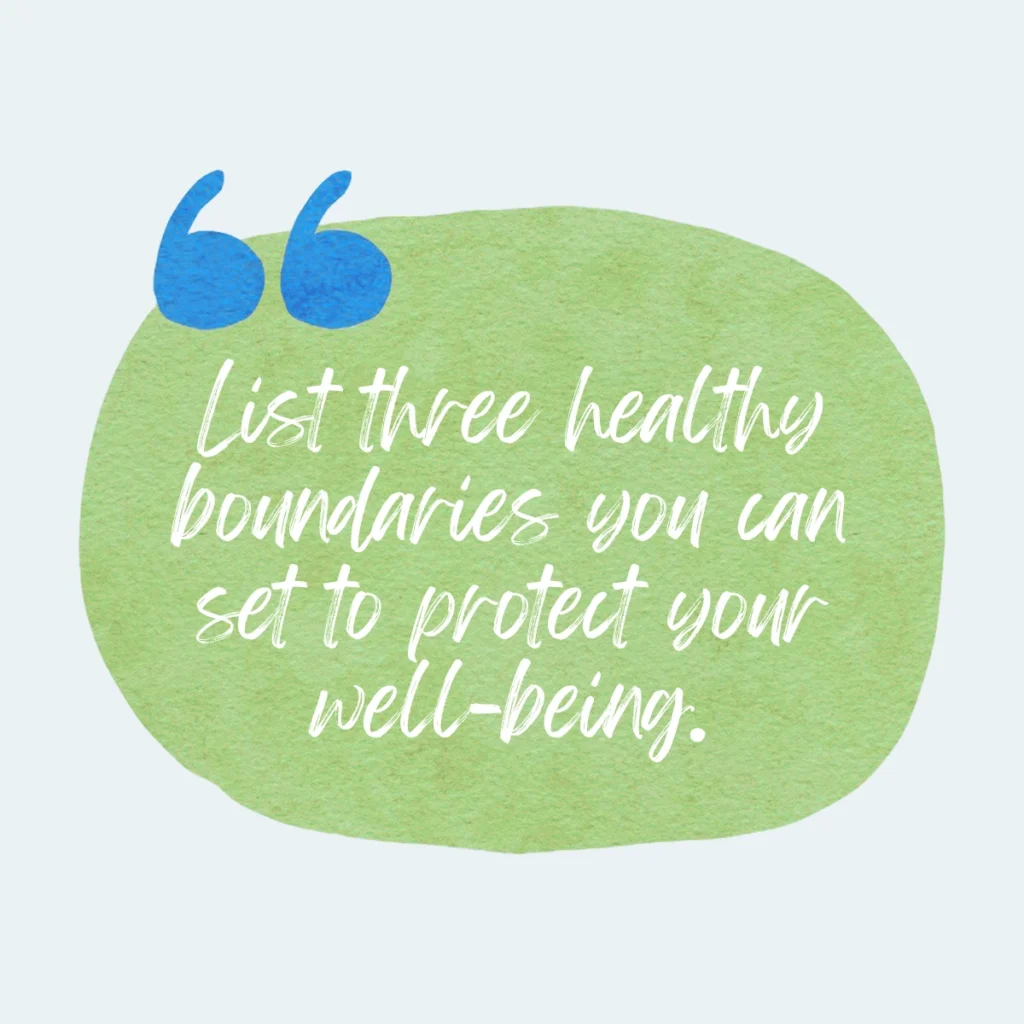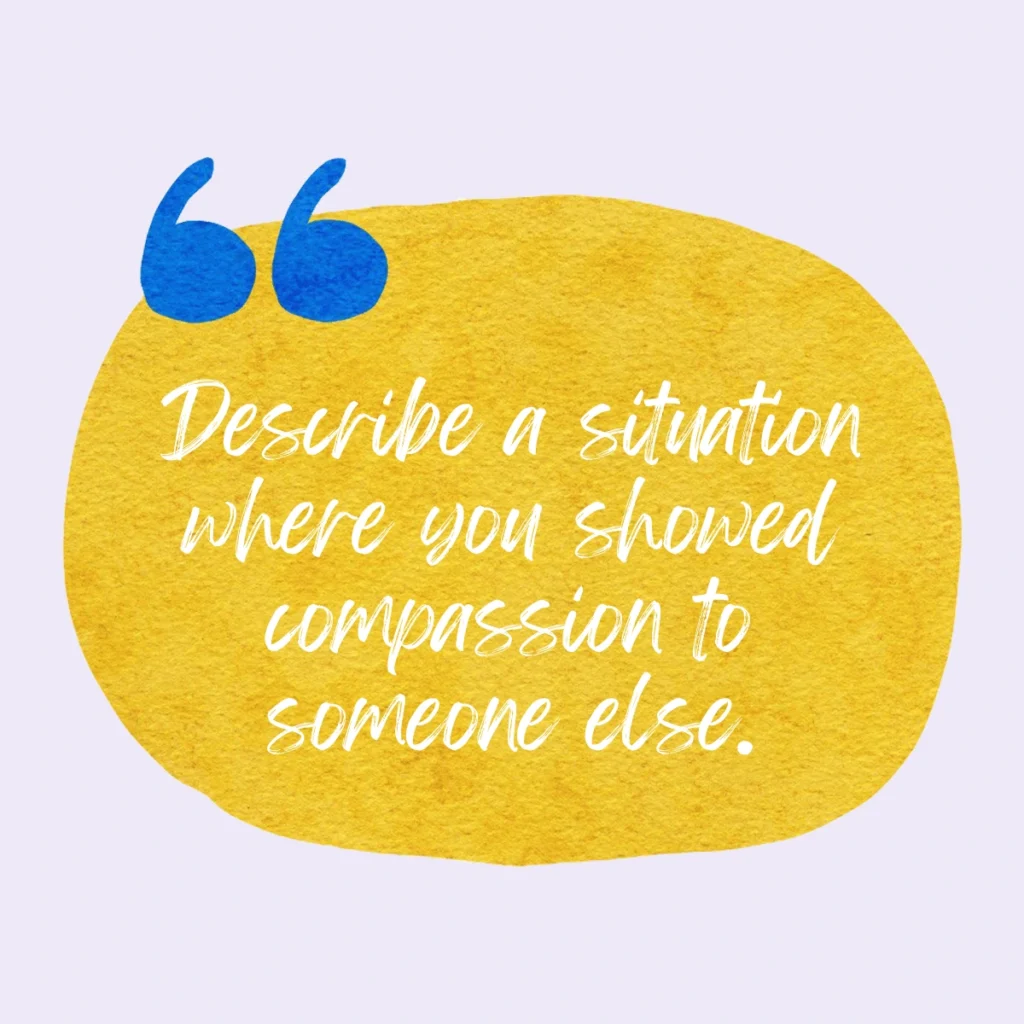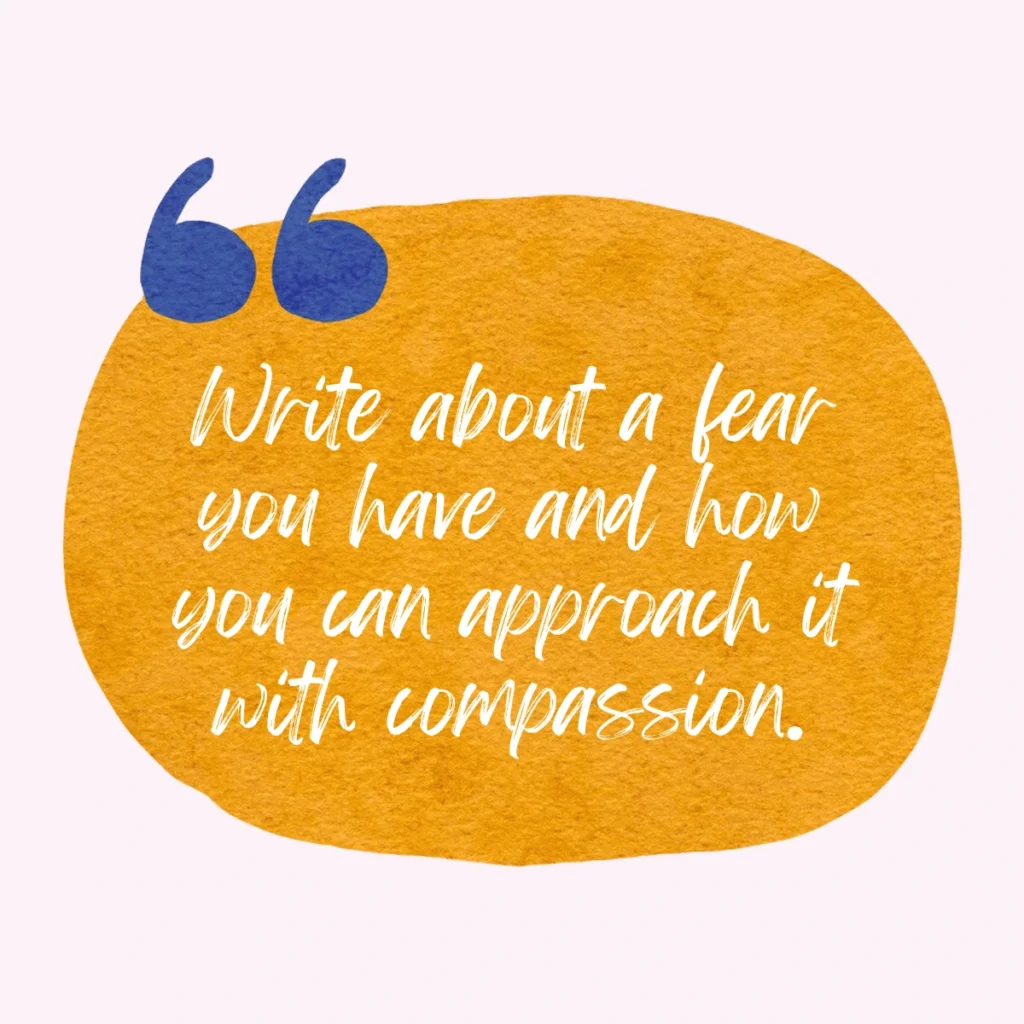Heads up! We may use affiliate links in this post. You'll never pay more, but we might earn a small commission if you buy - thanks for supporting us! See our full disclosure here.
Ever catch yourself being your own harshest critic, wishing you could extend the same kindness to yourself that you so easily offer others?
Trust me, you’re not alone in this struggle!
Like many of us, I’ve weathered my fair share of storms. Even now, I sometimes find myself trapped in a whirlpool of ‘what ifs’ and self-doubt.
It was as if my inner critic had set up camp in my mind, constantly nitpicking at every misstep and perceived flaw.

I’d never had a large circle of friends, and the few I did have led incredibly busy lives.
While they were caring and attentive listeners, I realised that uncovering the root of my self-perception issues required a more introspective approach – one that I could pursue on my own time and terms.
Self-Compassion vs Self-Esteem
It wasn’t until I stumbled upon a TED talk by Dr. Kristin Neff that my focus shifted towards self-compassion. Her words struck a chord with me, especially when she distinguished self-compassion from self-esteem which is what I initially thought I needed to work on.
Dr Neff explained that self-esteem is a global evaluation of self-worth”, if someone has high self-esteem this can actually be problematic because people tend to find ways to put others down to make themselves feel better – enhancing their own self-esteem.

On the other hand, “Self-compassion is not a way of judging ourselves positively, self-compassion is a way of relating to ourselves kindly, embracing ourselves as we are, flaws and all.” Dr Neff continued.
This definition resonated deeply, illuminating a path I hadn’t considered before – one of genuine self-acceptance rather than constant self-evaluation.
And what better way to explore this new path than through journal prompts?
By putting pen to paper and asking myself some soul-searching questions, I began to transform that harsh inner voice into a supportive ally. These prompts became my compass for understanding myself better and treating myself with the kindness I truly deserved!
Now, I’m about to share these transformative prompts with you. Fair warning: this journey isn’t always smooth sailing, but the destination? Absolutely worth it.
What Are The Three Pillars of Self Compassion

The three pillars of self-compassion, as defined by Dr. Kristin Neff, are:
- Self-kindness vs. Self-judgment: This pillar is about treating yourself with the same warmth and understanding you’d offer a good friend. Instead of harsh self-criticism, it’s about acknowledging that being imperfect, failing, and experiencing life difficulties is inevitable. When you’re struggling, rather than attacking and berating yourself, you offer yourself soothing and comfort.
- Common humanity vs. Isolation: This recognises that suffering and personal inadequacy is part of the shared human experience – something we all go through rather than something that happens to “me” alone. It’s about understanding that everyone fails, makes mistakes, and experiences hardships. This shared experience connects us to others rather than leaving us feeling isolated or alone in our struggles.
- Mindfulness vs. Over-identification: This involves being aware of our painful thoughts and feelings in a balanced way that neither ignores nor exaggerates them. It’s about observing our thoughts and feelings with openness and clarity, without trying to suppress or deny them. Mindfulness helps us avoid “over-identifying” with thoughts and feelings so that we are not caught up and swept away by negative reactivity.
These three elements interact and overlap to create a self-compassionate frame of mind. When we embrace them, we create a kinder, more connected, and clearer relationship with ourselves.
Why Use Self-Compassion Journaling Prompts?
Truth be told, being kind to ourselves doesn’t always come naturally. In a world that often celebrates hustle culture and perfectionism, treating ourselves with compassion can feel like swimming against the current.
That’s where self-compassion journaling prompts come in handy.
These prompts aren’t just random questions – they’re like gentle nudges guiding you towards a friendlier relationship with yourself.
Here’s why they’re worth giving a shot:
- They create a judgment-free zone: Unlike your inner critic, these prompts don’t come with a side of guilt. They provide a safe space to explore your thoughts and feelings without fear of self-criticism.
- They help you connect the dots: Sometimes, we’re so caught up in our daily grind that we miss the bigger picture. These prompts can help you spot patterns in your thinking and behaviour you might have overlooked.
- They’re like training wheels for self-kindness: If being nice to yourself feels awkward (trust me, been there), these prompts offer a structured way to practice. It’s like having a compassionate friend asking you the right questions.
- They turn abstract concepts into concrete actions: Self-compassion sounds great in theory, but what does it look like in practice? These prompts help you translate the idea into real-life scenarios and responses.
- They’re a form of self-care that doesn’t involve bubble baths: While there’s nothing wrong with a good soak, these prompts offer a different kind of nurturing – one that works on your mindset from the inside out.
- They can be eye-opening: You might surprise yourself with what comes up. These prompts can lead to “aha” moments about yourself and your experiences.
- They’re adaptable: Whether you’re a seasoned journal-keeper or a complete newbie, you can tailor these prompts to fit your style and needs.
Remember, this isn’t about becoming a whole new person overnight. It’s about gradually shifting your inner dialogue to one that’s more understanding and supportive.
Ready to give it a try?
30 Self-Compassion Journal Prompts
Alright, now that we’ve covered the essentials, let’s get into the good stuff—our 30 self-compassion journaling prompts.
1. Describe a recent mistake you made and how you can show yourself compassion in this situation.
– Mistakes happen. Write about one and explore ways to be kind to yourself instead of beating yourself up.
2. List three things you love about yourself.
– Celebrate your awesomeness! What are three things that make you proud?
RELATED: 50+ Awesome Journal Prompts For Self Love
3. Write a love letter to yourself.
– Pour your heart out as if you were writing to a dear friend.
4. List five achievements you’re proud of, no matter how small.
– From getting out of bed on a tough day to nailing that presentation, list them all.
5. Describe a time when you felt truly at peace.
– Reflect on what made that moment special and how you can bring more peace into your daily life.
6. Explore what compassion means to you.
– Define compassion in your own words and how it plays a role in your life.

7. Write about a challenging situation and how you can approach it with more compassion next time.
– Think of a tough time and brainstorm compassionate ways to handle similar situations in the future.
8. List three healthy boundaries you can set to protect your well-being.
– Boundaries are crucial. Identify three that will help you maintain your mental and emotional health.
9. Reflect on a time when you overcame a negative thought.
– How did you manage it? What can you learn from that experience?
10. Write about a person who inspires you to show yourself compassion.
– Who is your self-compassion role model, and why?
11. Describe your inner critic and give it a name.
– Personifying your inner critic can help you manage its voice. Give it a name and a character.
12. List three ways to be kinder to yourself this week.
– Practical steps to infuse more kindness into your daily routine.

13. Write about a time when you felt proud of yourself.
– Relive that proud moment and soak in the positive vibes.
14. Reflect on how your inner voice speaks to you.
– Is it supportive or critical? How can you make it more compassionate?
15. Describe a situation where you showed compassion to someone else.
– Reflecting on this can help you understand how to turn that compassion inward.
16. List five things you’re grateful for in your life right now.
– Gratitude and compassion go hand in hand. What are you thankful for today?
RELATED: 50 Positive Affirmations of Gratitude: Transform Your Mindset and Embrace Thankfulness
17. Write about a recent mistake and how you can learn from it.
– Learning is a form of self-compassion. What lessons can you take from your mistakes?
18. Explore how you can give yourself more understanding during tough times.
– Tough times call for gentle self-care. How can you be more understanding with yourself?

19. List three activities that bring you joy and help you relax.
– Joyful activities are a form of self-love. Identify three and plan to do them more often.
20. Reflect on a moment when you felt truly loved.
– What made you feel that way? How can you recreate that feeling for yourself?
21. Describe a negative thought and how you can reframe it positively.
– Challenge your negative thoughts by finding a positive perspective.
22. Write about a personal growth goal you have and how self-compassion can help you achieve it.
– Growth and compassion are partners in crime. How can self-compassion fuel your progress?
23. List five affirmations that can boost your self-compassion.
– Positive affirmations can rewire your brain for kindness. Create five that resonate with you.
24. Reflect on how you handle criticism from others.
– Are you too hard on yourself? How can you handle criticism with more self-compassion?

25. Write about a time you forgave yourself for a mistake.
– Forgiveness is a powerful tool for healing. Reflect on a moment of self-forgiveness.
26. Describe a dream or goal you have and how you can support yourself in achieving it.
– Your dreams deserve compassion too. How can you be your own cheerleader?
27. List three things you can do to nurture your body and mind.
– Self-care is essential. What are three ways to take care of yourself holistically?
28. Write about a fear you have and how you can approach it with compassion.
– Facing fears with kindness can diminish their power. How can you be compassionate toward your fears?
29. Reflect on how you can incorporate more self-compassion into your daily life.
– Small, daily acts of compassion add up. What can you do each day to be kinder to yourself?
30. Describe your ideal compassionate self.
– Visualise your most compassionate self. What does that look like, and how can you embody it?







